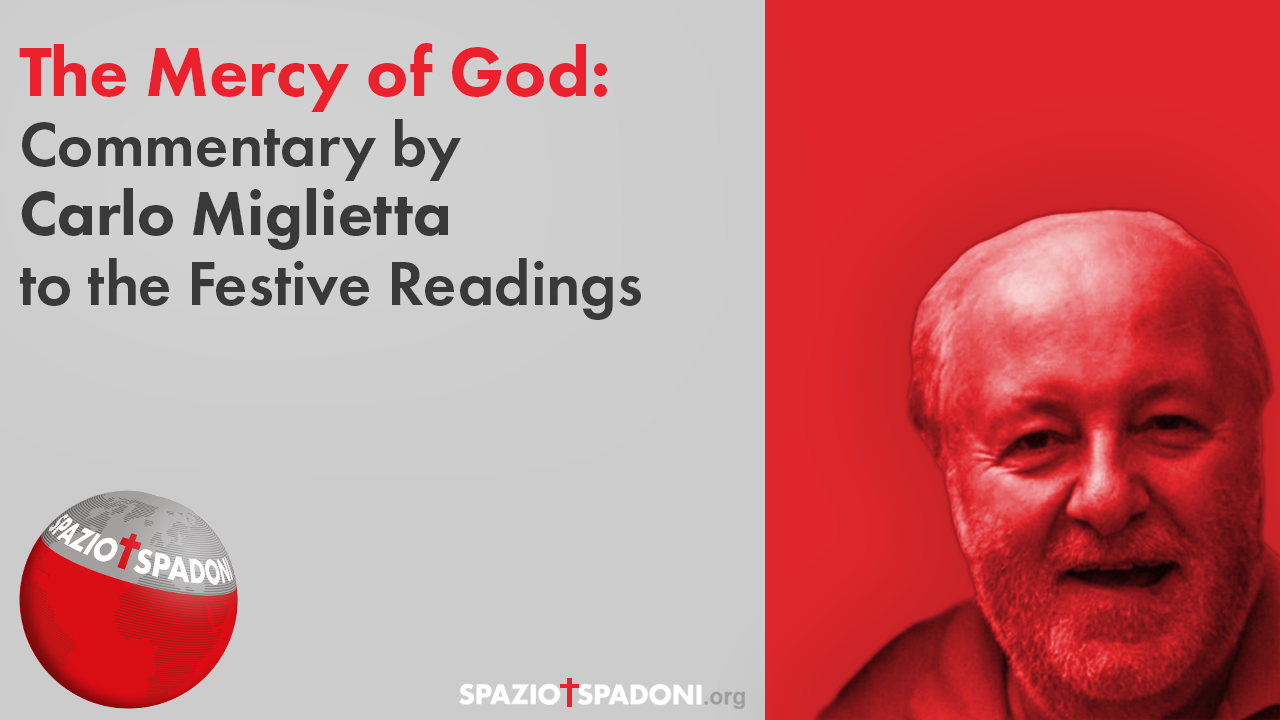
II Sunday Of Lent B – The Father Who Immolates His Son For Love
Readings: Gen 22:1-2.9.10-13.15-18; Rom 8:31-34; Mk 9:2-10
There is perhaps no stronger love than that of a father for his child: only a father who has pined for his son’s health, feared his death, or experienced this frightening event can understand the tragic grandeur of today’s readings.
An Infinite Love
On the one hand, the drama of God who sees his Son die, indeed who immolates him, who “does not spare him” (second reading: Rom 8:31-34), out of love for us, for us sinners: Paul contemplates in shock the immensity of God’s Love for us, and cries out in amazement, “If God is for us, who will be against us…? Who then will separate us from the love of Christ?”(Rom. 8:21, 35). On the other, a man, Abraham, who out of love for God accepts, with a torn heart, to sacrifice “his son, his only son, whom he loves” (Gen. 22:2). If the covenant with Noah (Gen. 9:8-15), on which we meditated last week, emphasized the one-sidedness of God’s initiative, the covenant with Abraham emphasizes the meeting of two absolutes: God’s immeasurable love for man demands that he have no other absolute than God (Lk. 14:26; 18:29).
Against human sacrifices
In fact, God’s love infinitely overpowers man’s love: God does not permit the sacrifice of Isaac: the account probably originates precisely as a challenge to the Canaanite custom of offering human sacrifices to God (Lv 18:21; 20:2-5; Deut 12:31; 18:10; Ex 13:11). Abraham prophetically states, “God Himself will provide the lamb for the burnt offering” (Gen 22:8): and “Abraham called that place, ‘The Lord provides’; therefore today it is said, ‘On the mountain the Lord provides'” (Gen 22:14): later tradition identifies Moria with the hill where the temple in Jerusalem will rise (2 Chr 3:1), near Golgotha, where the very Son of God will be sacrificed. For it is Jesus “the Lamb of God, who takes away the sin of the world” (Jn 1:29; 1 Pet 1:19; Rev 5:6; 12:11; 19:7…), the sacrifice of the “new covenant” (Lk 22:20).
The Lamb sacrificed is God
With the Gospel of the Transfiguration (Mk 9:1-9), we are perhaps at the Jewish Feast of Sukkot, in which people live in huts or tents (Lev 23:39-42) to recall the nomadic period in the desert during the Exodus: Peter proposes to Jesus to build three tents; on the seventh day we are clothed in white: Jesus’ robes are white and shining; Deut 33-34 is read, in which Moses speaks to God face to face, as he does here with Jesus the Lord; the one who reads the Torah in the feast is the chatan Torah, the “Bridegroom of the Torah,” a prophecy that Jesus often applies; the celebration ends with prayer for the coming of the Messiah: God himself proclaims Jesus as the Messiah.
Various reading possibilities: Jesus, meditating on the Old Testament (Moses = the Torah, Elijah = the Prophets) becomes aware of his mission as divine Messiah (importance of prayer and meditation on Scripture… ); in a liturgical context, the disciples understand that Jesus is the Messiah announced by all Scripture, that he is the Bridegroom, the hermeneut of all Torah, that at last the last times have come, in which the Messiah fulfills the Covenant (Hos 12:10; Zech 14:16) by restoring creation to its original beauty (“It is good for us to be here.” 9:5): the Shema Israel, the “Listen, Israel” (Deut. 6:4-5) is now obedience to the Word of Jesus (the liturgy the privileged place of divine revelation. ..); a true miracle, anticipation of the glory of the resurrection.
In any case, the Transfiguration is the great moment when it is revealed that the Son of Man who “must suffer much and be despised” (Mk. 9:12) is God Himself: the mystery of a God who makes a Covenant with man-a miracle of Mercy-at the price of His own blood…
